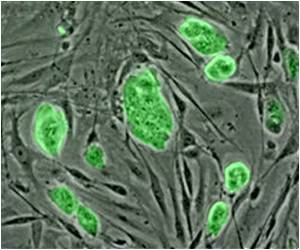A study on swordtail fish has found that when a female is attracted to a male, entire suites of genes in her brain turn off.
A study on swordtail fish has found that when a female is attracted to a male, entire suites of genes in her brain turn off.
The study, conducted by Molly Cummings, assistant professor of integrative biology and Hans Hofmann, assistant professor of integrative biology both from The University of Texas at Austin, found that some genes were turned on when females found a male attractive, but a larger number of genes were turned off.Female swordtails are attracted to males that are large and have ornaments on their bodies, such as long tails and striking coloration.
In the study, females were placed in the centre of a tank separated into three zones for 30 minutes.
When an attractive male was in one of the adjacent zones, females showed typical behaviours indicating that they had chosen the male for mating. The females were also tested with other females, with unattractive smaller males, and in empty tanks.
The researchers immediately extracted RNA from the females and used gene array technology to identify genes that were being up regulated (turned on) and down regulated (turned off) in the females’ brains.
The scientists looked at more than 3,000 genes and found that 77 were involved in the females’ mate choice behaviour.
Advertisement
The same genes that turned on when the females were with attractive males turned off when they were with other females and vice versa.
“What we have not appreciated until now is how dynamic the genome is. It is constantly changing and even in a very short period of time, 10 percent of the protein-coding genome can change its activity. We now have a genomic view of these dynamic processes within a social context,” added Hofmann.
The researchers suggest that the gene sets they studied could be involved in orchestrating mating responses in all vertebrates.
The study has appeared online in Proceedings of the Royal Society of London B.
Source-ANI
LIN/M






